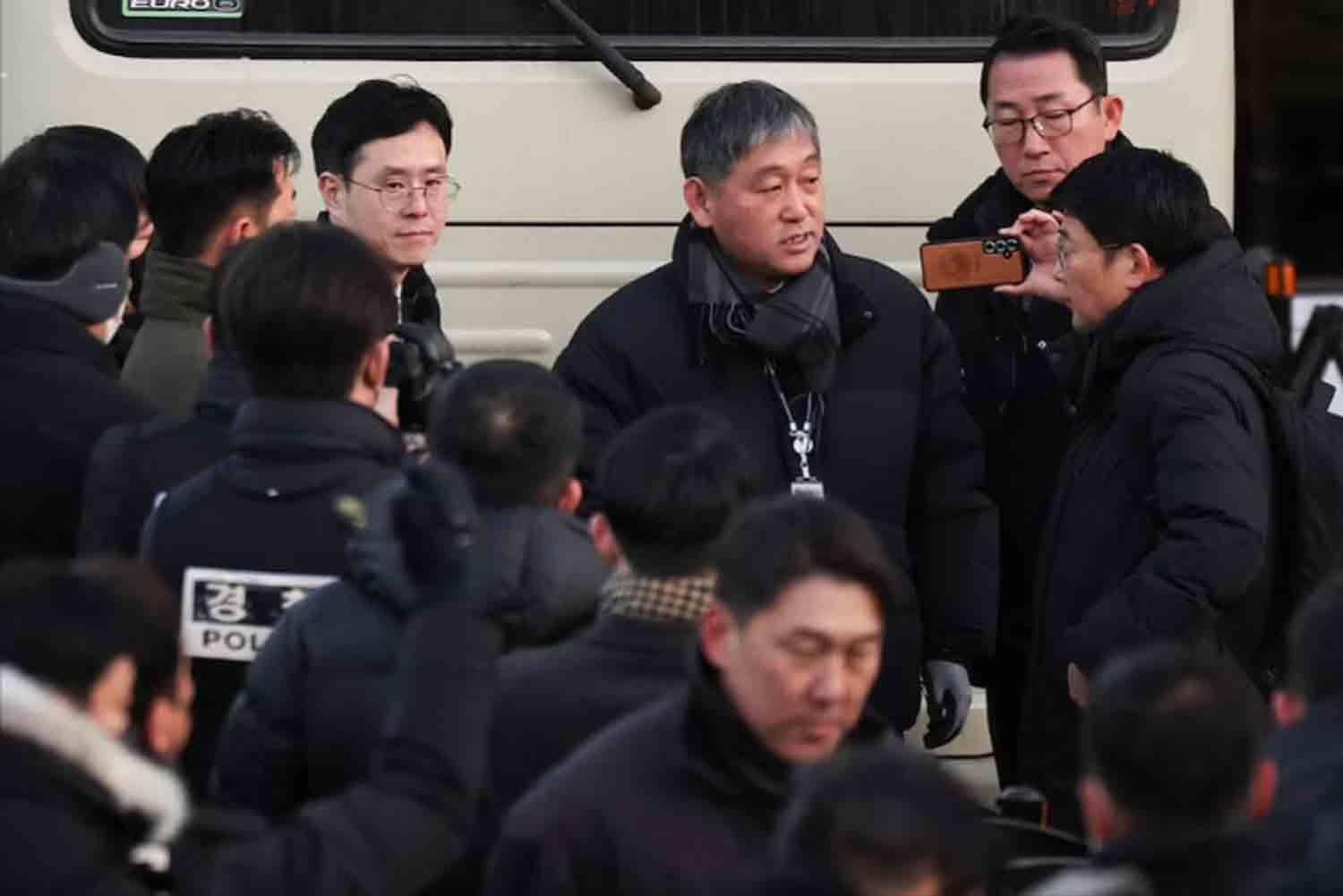Authorities entered the residence of impeached South Korean President Yoon Suk Yeol on Friday to carry out an unprecedented arrest warrant, navigating through a crowd of protesters outside. However, they encountered resistance from presidential security forces within the compound.
It remains uncertain whether the Presidential Security Service (PSS), which has previously obstructed investigators from accessing Yoon’s office and official residence, would attempt to prevent his arrest.
Yoon is currently under criminal investigation for insurrection related to his attempt to impose martial law on December 3, an action that shocked South Korea, the fourth-largest economy in Asia and a prominent democracy in the region. If arrested, he would be the first sitting president in South Korea to face such a situation.
Officials from the Corruption Investigation Office for High-ranking Officials (CIO), which is spearheading a collaborative investigation team that includes police and prosecutors, arrived at Yoon’s compound shortly after 7 a.m. (2200 GMT Thursday).
The CIO vehicles were initially unable to enter the compound due to a bus obstructing the driveway. Some officials later managed to enter on foot through an open gate, bypassing the bus, but encountered another bus and an armored vehicle further along the driveway before they were cleared. Once inside, the CIO and accompanying police were met with barriers set up by PSS personnel and military troops assigned to presidential security, according to media reports. The South Korean Ministry of National Defense confirmed that the troops were under the command of the PSS.
The head of the PSS was quoted by Yonhap news agency stating that authorities are prohibited from searching Yoon’s residence. Yoon’s attorney issued a statement on Friday asserting that the enforcement of an invalid arrest warrant against Yoon is unlawful, indicating that they will pursue legal action, though details were not provided.
In the early hours, protesters gathered near Yoon’s home, with numbers increasing into the hundreds as media reported that investigators were preparing to execute the arrest warrant approved on Tuesday after Yoon declined to appear for questioning. One protester was heard urging others, “We must defend ourselves with our lives.” Some demonstrators chanted, “The people will protect President Yoon Suk Yeol,” while calling for the arrest of the head of the CIO.
Pyeong In-su, 74, expressed that police should be obstructed by “patriotic citizens,” a term Yoon used to refer to those guarding his residence. Waving a flag representing both the United States and South Korea, inscribed with “Let’s go together” in English and Korean, Pyeong expressed hope that incoming U.S. President Donald Trump would assist Yoon. “I hope after Trump’s inauguration he can use his influence to help our country get back on the right track,” he stated.
The current arrest warrant remains valid until January 6, allowing investigators only 48 hours to detain Yoon post-arrest. They must then determine whether to seek a detention warrant or release him. Following his arrest, Yoon is anticipated to be held at the Seoul Detention Center, as reported by Yonhap News Agency, citing the CIO.
SURPRISE MARTIAL LAW
Yoon caused a national stir with a late-night announcement on December 3, declaring martial law to address political impasses and eliminate “anti-state forces.” However, within hours, 190 lawmakers defied military and police barriers to vote against Yoon’s decree. Approximately six hours after his initial announcement, Yoon retracted the order.
He subsequently provided a resolute justification for his actions, asserting that his domestic political adversaries are sympathetic to North Korea and referencing unverified allegations of electoral interference. Kim Yong-hyun, who stepped down as Yoon’s defense minister after significantly contributing to the martial law decree, has been apprehended and was indicted last week on charges of insurrection and abuse of power.
Insurrection is one of the few offenses for which a South Korean president does not enjoy immunity. Yoon’s legal team contends that the arrest warrant was unlawful and invalid, arguing that the CIO lacked the authority under South Korean law to issue such a request. Since his impeachment and suspension from office on December 14,
Yoon has faced increasing isolation. In addition to the criminal investigation, his impeachment case is currently under review by the Constitutional Court, which will determine whether to reinstate him or remove him permanently. A second hearing on this matter is set for later today.
Discover more from Defence Talks | Defense News Hub, Military Updates, Security Insights
Subscribe to get the latest posts sent to your email.





